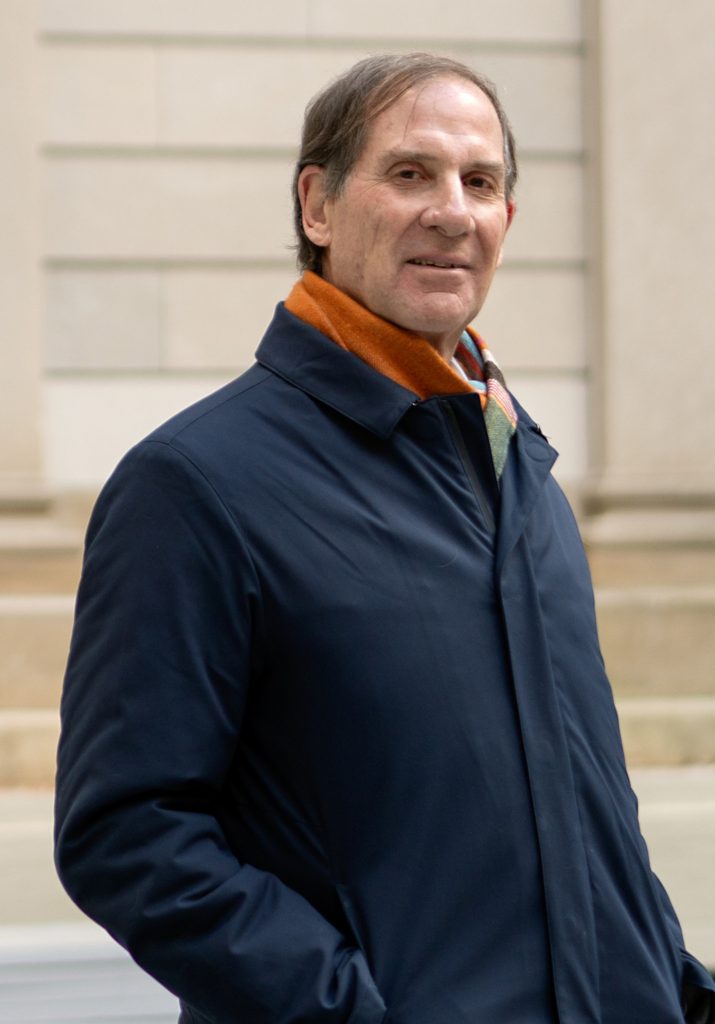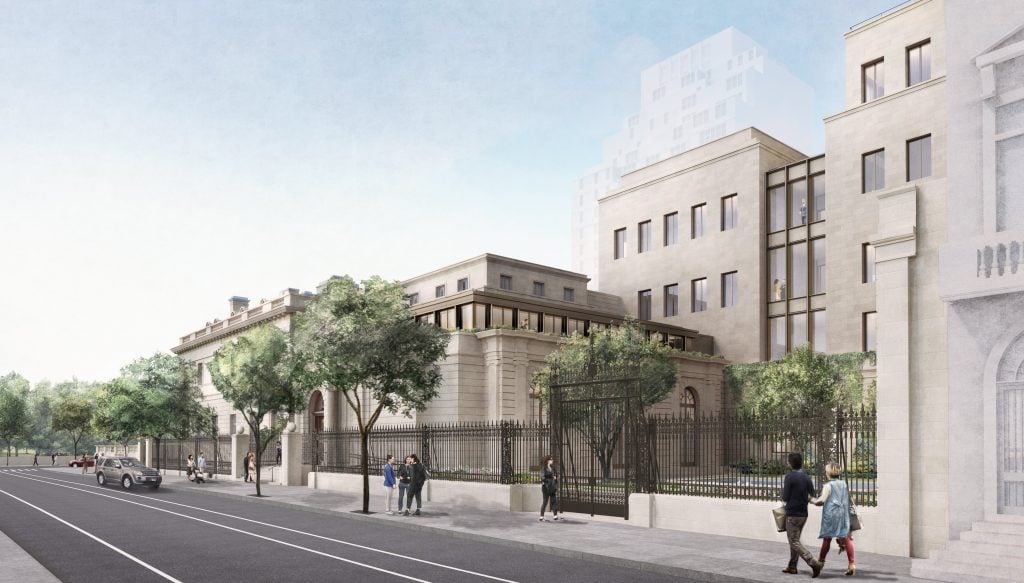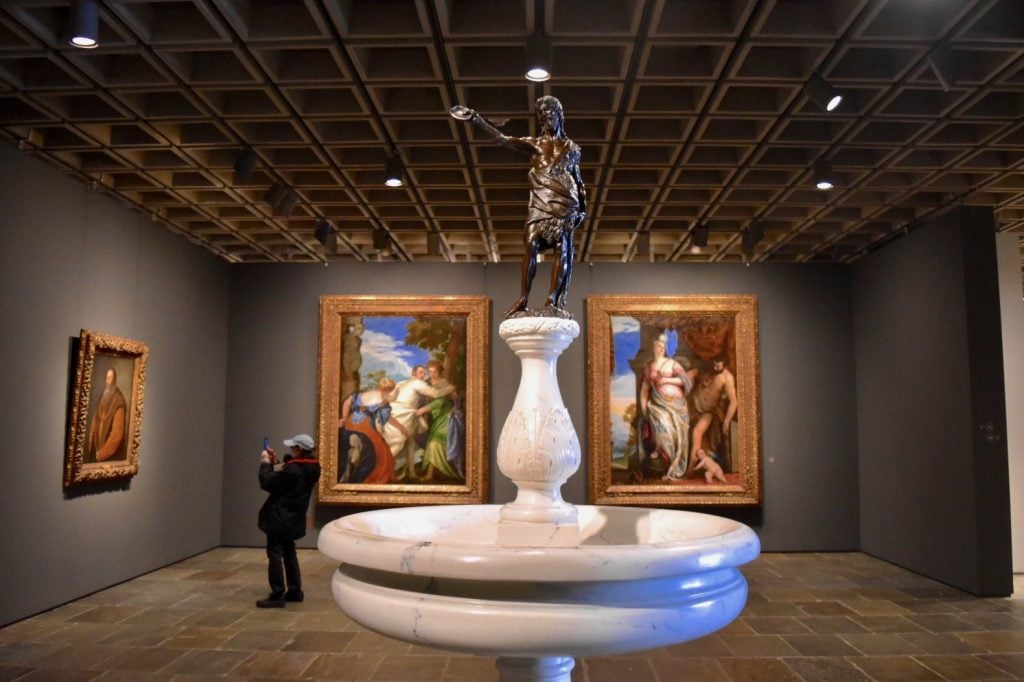New York’s Frick Collection has tapped Axel Rüger as its next director, succeeding Ian Wardropper, who held the role for 14 years.
The Frick will be the third museum Rüger has run, after helming the Royal Academy of Arts in London since 2019 and the Van Gogh Museum in Amsterdam (as well its sister institution the Mesdag Collection in The Hague, dedicated to the 19th-century husband and wife artists Hendrik Willem Mesdag and Sientje Mesdag-van Houten) for over a decade.
Rüger, age 56, was also previously the curator of 17th and 18th-century Dutch paintings at London’s National Gallery—a good fit for the Frick, known for its collection of European Old Masters.
“Axel is a rare museum director who embodies a complex set of skills, all of which are of great importance, particularly at this pivotal moment for cultural organizations,” Elizabeth M. Eveillard, the Frick’s board chair, said in a statement. “As an established museum director, he brings steady, strategic insight, as well as a proven ability to inspire and guide dynamic teams to great achievement. A brilliant mind in the field, he also holds a highly relevant curatorial background.”

Frick Museum director Ian Wardropper. Photo by Richard Renaldi. Photo courtesy of the Frick Collection, New York, ©Richard Renaldi.
When the 73-year-old Wardropper announced his impending retirement last year, he had expressed his hope that the museum would promote from within, namedropping deputy director and chief curator Xavier F. Salomon as a potential replacement.
Instead, like the nearby Metropolitan Museum of Art, which hired Austrian museum leader Max Hollein as its director in 2018, the Frick has looked to Europe. (News of Rüger’s appointment was first reported by the New York Times.)
It is currently something of a moment for a changing of the guard at top New York City institutions.
Last year, Richard Armstrong stepped down after nearly 15 years as director of Solomon R. Guggenheim Foundation, handing the reins over to Mariët Westermann, formerly of vice chancellor NYU Abu Dhabi in the United Arab Emirates. Further downtown, Whitney Museum of American Art director Adam Weinberg announced plans to pass the torch to Scott Rothkopf, the institution’s current senior deputy director and chief curator, who took up the top post in November.
And the art world will be eagerly awaiting an announcement on the successor to Glenn Lowry, who announced this month that he will retire next year.

The Frick Collection. Courtesy of Selldorf Architects
Rüger oversaw major renovations at the Van Gogh Museum while boosting annual attendance from 1.4 million to 2.2 million. At the Royal Academy, he curated last year’s “Souls Grown Deep Like the Rivers: Black Artists from the American South” and a retrospective of Irish Conceptual artist Michael Craig-Martin opening this weekend.
He will start at the Frick next spring—likely around the time that the museum will unveil a long-awaited expansion and renovation.
“The Frick is a uniquely special place, and there is not another museum in the world quite like it,” Rüger said. “Since the early 1990s, I have always made a point to visit and admire the museum any time I was in New York City. Leading the Frick—with its spectacular collection of stunning masterpieces, rich history of exhibitions, intimate residential setting, library, and location in such an exciting city—is an irresistible proposition, particularly at this milestone moment.

Francesco da Sangallo, St. John Baptizing and Giovanfrancesco Pagni, holy water font, at the Frick Madison. Photo by Ben Davis.
The expansion project, which will open the Frick family’s second-floor living quarters to the public for the first time, saw the museum decamp temporarily to the Breuer building on Madison Avenue. It also dominated much of Wardropper’s tenure.
The initial plans, announced over a decade ago had to be scrapped due to outrage from preservationists eager to save a Russell Page-designed garden. The final design from Selldorf Architects still had its opponents, but Wardropper was nonetheless able to steer it to completion.
The director also helped make the Frick a surprise hit online, growing the museum’s virtual audience during the pandemic with the beloved, award-winning “Cocktails with a Curator” YouTube series. The museum’s current biweekly video series, “Restoration Stories,” takes viewers behind the scenes on the work being done ahead of the reopening.


